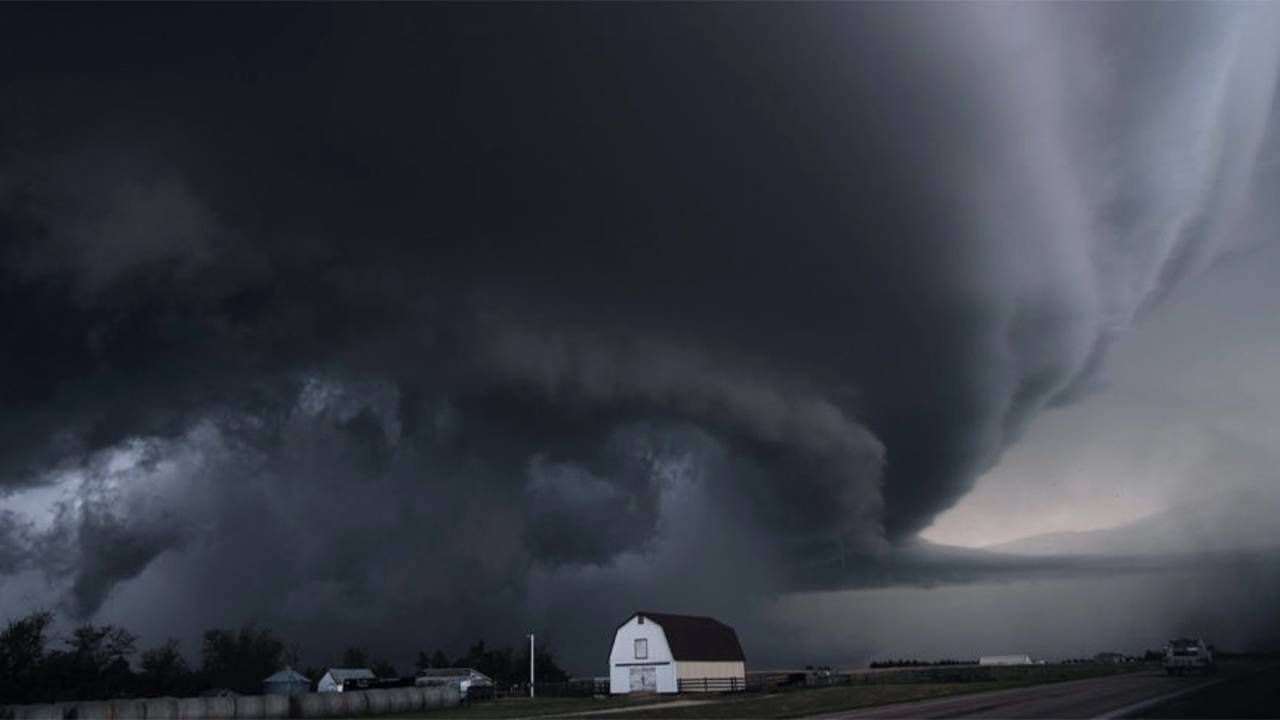10 Tips for Rural Dwellers to Prepare for Emergencies
Anticipating natural disasters may be a life-or-death matter in the country
The forecast was for up to four inches of snow, typically not enough to knock power out at my rural Ozark Mountain home in Arkansas. However, the snow came down very wet and heavy and the power blinked so often I finally unplugged all my electronics.

About three hours into the storm, the power blinked one final time. As we later learned, a power line on a pole right next to my driveway had become so heavy that it sagged and touched another line, blowing the power.
It only took 15 minutes for a lineman to fix once he got to us, but because the problem only affected three customers at my end of the road, the repair was low on the priority list of our local utility. Our power was out for 48 hours.
"If you stay ready for an emergency, you don't have to rush around and get ready."
I have a generator, but I hadn't yet gotten gas that early in the season and wasn't expecting the power to go. I also had put off ordering a battery-operated charger for my phone and electronics. The roads were snow packed and I couldn't get out. Luckily, I did have a woodstove and plenty of firewood to keep me warm.
Although I have lived here for 15 years, I was reminded to always be prepared for an emergency, not just when the meteorologists predict a bad storm.
"If you stay ready for an emergency, you don't have to rush around and get ready," says Tim Tracy, national inspector and trainer for Groundworks, a foundation company in Virginia Beach, Virginia. Tracy grew up in rural Kansas and knows that country living can present special challenges in emergencies.
While some of these tips are no different from what to do if living in an urban area, preparing for disaster in rural areas is especially important because help may be farther away and more densely populated areas are likely to be a higher priority for rescuers.
10 Steps to Prepare for Disaster in a Rural Area
1. Know your risk. "Understand which emergencies and disasters occur in your area, so that you can begin your preparedness plan," says Bart Hester, an insurance agent for Country Financial. He also raises cattle in Norman Park, Georgia.
2. Assemble or update your emergency kit. Hester recommends assembling an emergency kit with food, water, first aid supplies, medication, batteries, flashlights, blankets, extra cell phone chargers, food, medication and pet supplies. "Put these items in a lightweight, waterproof container and place it somewhere that can be easily accessed in an emergency," he says.
3. Keep important documents in a fire-safe box that is easy to grab. Keep all your important documents — including birth certificates, marriage certificate, passports, Social Security cards and insurance information — in a fire safe box that is easily accessible. Ryan Stokes, vice president of Property Damage Appraisers, Inc. in Marble, Arkansas, also advises to document your valuables, including their models and/or serial numbers and purchase dates, and keep a digital record in the cloud. "This would include all your high-dollar appliances, bedroom furniture, mattress and custom-made furniture so you can prove what it is worth if you have to file a claim," he says.
4. Must-have equipment for emergencies. I have a generator big enough to run lights, television, the well pump and the hot water heater at the same time. If you really want to invest, you can purchase a whole-house generator that runs off propane and automatically kicks on if you lose power. I also now have a battery powered radio that has a flashlight and can charge my cell phone. It can also run off solar or crank power. Another item is a larger device capable of charging my car battery and putting air my tires.
Because I am in tornado country and cannot hear sirens, I also have two battery operated weather radios on hand. Of course, you need to make sure all this equipment is properly charged and maintained. Gasoline should be drained from generators and rotated at least every three months.
5. Stock up on food, water and medication. Some recommend keeping at least three month's supplies on hand, but this can be difficult to buy and store. The worst disaster I've been through here was a devastating ice storm that left us without power for 10 days. I keep enough water, food, and medication to last at least three weeks.
I have a generator big enough to run lights, television, the well pump and the hot water heater at the same time.
6. Create a communication plan. "Your family may not be together when disaster strikes," says Hester. "Have a discussion with your partner about emergency preparedness, including where you can meet and how everyone can get in contact if the unexpected happens." Hester says practicing your plan is as important as drafting it in the first place. This is important if you live in an area prone to wildfires. Sometimes there are limited routes out of the path of the fire.
7. Network with your community. During our ice storm, we couldn't get off our road, but because we knew some of the volunteer fire people, they were able to drop off extra cases of water. If you must hire contractors for repairs later, it's always best to get referrals from people you know. "It isn't like contractors in rural areas have storefronts, they get their work by referrals," says Hester. "It helps if you know people in your community who can refer you to trusted local contractors."
8. Stock the basement or cellar. A large swath of the country is in the path of tornadoes. Make sure you have enough supplies in the cellar to ride out the storm or possibly wait for rescue. In addition to the water, food, medicines and radios mentioned earlier, Cynthia Rowland, who lives with her partner, Howard Harmon, in rural Newalla, Oklahoma, says they even make sure they have wine, an opener, and glasses in the cellar. Don't forget pets. You may need to crate them to get them to a safe place quickly.
9. Prepare your house. Tracy says the biggest threat to almost any home is water damage. Everyone should make sure their house is prepped for the seasons, including regularly inspecting the roof and having a professional inspect and clean stove pipes and flues, as well as ensuring pipes are well insulated or wrapped during the winter. "Before a storm with high wind, don't forget to secure everything outside such as deck furniture which can fly and break windows or injure," says Tracy.
10. Consider growing your own. Ashley Christian, a fifth-generation homesteader who lives with her family of seven in rural Texas, says it gives her comfort to grow much of their own food and to have livestock such as chickens. Christian describes the ice storm that blanketed much of Texas last year as being the worst disaster they've faced. She says they were prepared for a disaster, but the lack of food available in stores took her aback.
"Everything was frozen, so they couldn't transport the food to our stores," she recalls. "We couldn't get gas for generators. It hit me at a deep level how little it took for the whole system we rely on to collapse."


